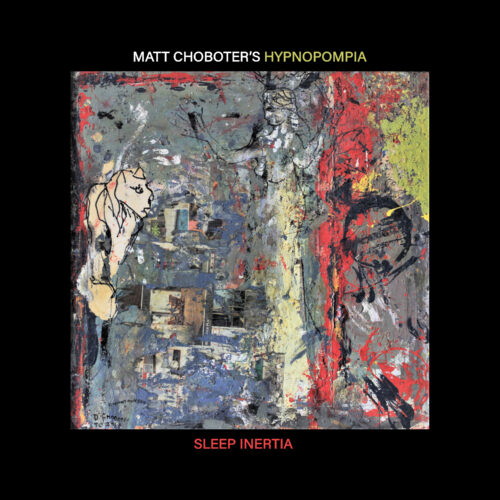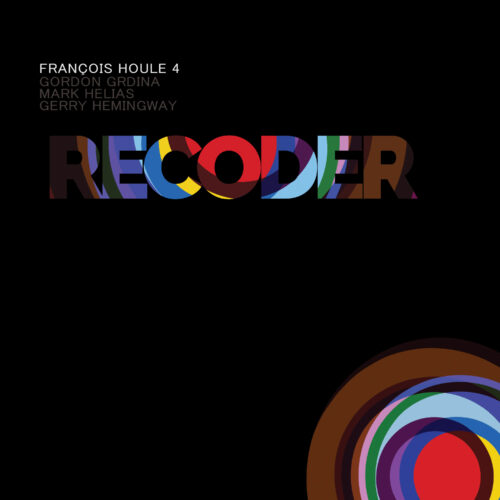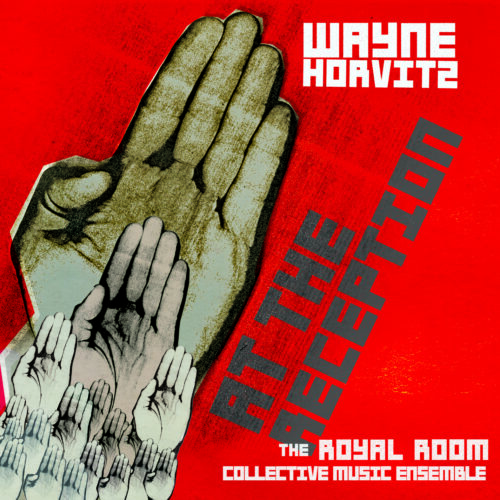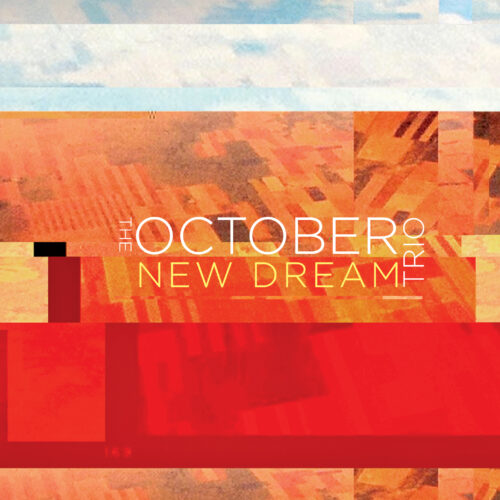A soundtrack of the transitional state between sleep and waking, this album of creative original music by award-winning pianist Matt Choboter features the astonishing talents of clarinetist François Houle.
– Mark Werlin, AllAboutJazz
Young Canadian pianist-composer Matt Choboter has been busy developing projects that reveal an ever-adventurous, questing musical personality. Here he presents music inspired by the psychological state called hypnopompia – the state of consciousness leading out of sleep. It mirrors the hypnagogic state at sleep onset, but the two have different phenomenological characters. Both however typically involve perceptual distortions and sometimes hallucinations. Beyond the psychological, this music embraces South Asian classical music’s nuanced polyrhythms and extended time cycles, refigured in the context of contemporary creative music, jazz and ambient music.
The music was developed with the Canadian performers on this record: internationally prominent clarinetist François Houle, Montreal-based creative guitarist Jacob Wiens, Vancouver bassist James Meger, and drummer and longtime Choboter collaborator Andrew Thomson. This group premiered the music at the 2019 Vancouver Jazz Festival, but it underwent significant changes in the recording process, as Choboter relates:
“…the intricacies of the music were essential to internalize, but I became more and more focused on deconstructing, blurring formal elements and creating more moment-to-moment creative choices for us, collectively. On several pieces I wanted the conceptualizations – which were often the rhythmic frameworks – to dissolve away like beach sand receding into the ocean tide. The musical goal was always to forge bridges between the cerebral and subconscious. A shifting interaction where there might emerge disorientation, ambiguity and illusion.” As Choboter writes in the booklet, “these compositions and improvisations attempt to evoke personal hypnopompic content – embodied dreamscapes, real and imagined places in the world and archetypal characters. We, the band, explored and sonically fleshed-out these landscapes and processes. The pieces perhaps nurtured deeper subconscious shared experiences.”
Jungian psychology has certainly influenced Choboter’s thinking about creativity and nurturing a relationship with the subconscious: “…the pathways toward collective subliminal experiences converge in the need for exploring a kind of inner child. Basically, staying curious and open to new experiences. I think this is why the music has changed quite a lot since 2019. I’ve invited more possibilities into exploration, essentially. On the surface this could manifest through preparations – bolts, pieces of wood between the strings of the piano – or in the case of clarinet, guitar and bass, the use of electronic pedals. The greater prominence of electronics is perhaps a reflection of this need for exploration but also an identification with the overarching metaphor of moving from the dream-world into wakefulness. Electronics traverse this liminality, but more importantly for me are symbolic of wakefulness, and the mechanistic and technological ‘waking world’ we find ourselves in.”
Choboter’s studies and formative musical experiences include a B.Mus in jazz performance from Capilano University in North Vancouver (2014); a stay in Chennai, South India, where he was drawn to the rigorous rhythmic practice of Carnatic music (2015); and studies in Montreal with Jean-Michel Pilc and in Paris with Benoît Delbecq, the latter part of his Masters program at Copenhagen’s Rhythmic Music Conservatory, where he now holds an Advanced Post Diploma in Composition and Research. Although he name-checks Steve Coleman, Vijay Iyer, Henry Threadgill, Miles Okazaki and Ben Monder as earlier compositional influences, he considers Hypnopompia as beyond jazz: “…the overarching psychological ideas, the methods of compositions and dramaturgy relate to a contemporary classical and experimental context. But given the instrumentation and the improvisations I believe this project still relates more to a post-jazz aesthetic.”
Matt Choboter’s Hypnopompia
Matt Choboter – piano
François Houle – clarinet
Jacob Wiens – guitar
James Meger – bass
Andrew Thomson – drums
Tracklist
Please note that the below previews are loaded as 44.1 kHz / 16 bit.Total time: 00:50:16
Additional information
| Label | |
|---|---|
| SKU | SGL16342 |
| Qualities | DSD 512 fs, DSD 256 fs, DSD 128 fs, DSD 64 fs, DXD 24 Bit, WAV 96 kHz, FLAC 192 kHz |
| Channels | |
| Artists | |
| Composers | |
| Genres | |
| Original Recording Format | |
| Recording Engineer | John Raham |
| Recording Location | Afterlife Studios, Vancouver |
| Mastering | Mastered by Chris Gestrin at Public Alley 421. |
| Analog to Digital Converter | Lynx Aurora |
| Release Date | May 20, 2025 |
Press reviews
Musicworks
Choboter has created an eight-part auditory suite that turns subconscious dreamscapes into musical exploration…the result is compelling rather than disquieting….Dramatic tone extensions with wailing guitar riffs and splattering keyboard runs ensure that interconnected textures are energetic as well as erudite. The most extended instance of this is “Sleep Inertia,” where billowing waveforms precede drum backbeats and disconnected guitar frails as reed tongue slaps propel a swing section, only to have the electronic and acoustic motifs flow together in the finale. A production of waking imagination, Choboter’s hallucination examination is a realized musical dream, not a miasmatic nightmare.
All About Jazz
In keeping with its title, these eight tracks of just over fifty-minutes comprise a waking/sleeping dreamscape where conscious thoughts crystallize, then turn amorphous in an engrossing cyclical pattern. The fourteen or so minutes of the two-part “Converging Diverging” elucidate the most literal instrumental explication of the concept: replete with far too much ornate detail to fit the description of free jazz, the musicianship nevertheless radiates an abiding spontaneity with all instrumental commentary and elaboration/embellishment from around the quintet….this is most addictive stuff, its effect all the more deep because cuts like “Teslin Lake” belie the conventional notion of what’s infectious.
The Best Jazz on Bandcamp: July 2022
On the latest release from Matt Choboter, the presence of a thick fog is no less riveting than the sudden appearance of shapes within its midst. The splashes of melody and washes of harmony swirl back and forth, at times heavy and impenetrable, other times soft and ethereal, but always in motion and perpetually transforming. The pianist goes big, telling the story through the nuance etched into the dense surface of a soundscape.
Only logged in customers who have purchased this product may leave a review.







Reviews
There are no reviews yet.